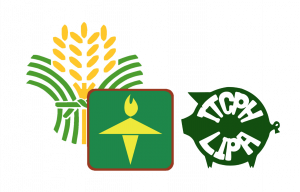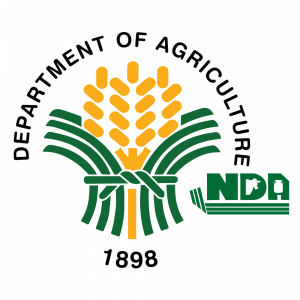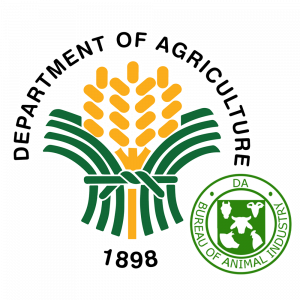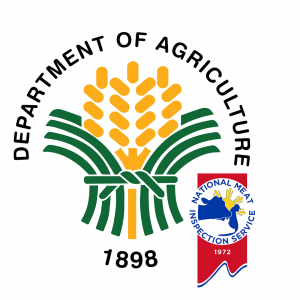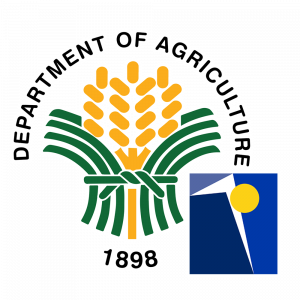1. Integrated National Swine Production Initiatives for Recovery and Expansion (INSPIRE) Program
The Department launched INSPIRE Program and Bantay ASF sa Barangay or BABAy ASF Program, a twin program that aims to institutionalize biosecurity and disease control measures in tandem with calibrated repopulation and enhancement of the local swine industry to recover the sector’s capacity to locally produce sufficient supply of hogs and pork by the year 2023. These twin programs were supported by the Administrative Orders No. 06 and 07 series of 2021, respectively.
The INSPIRE Program is the recovery and repopulation program of the Department for the hog sector, directly responding to the needs of the industry, given the ASF problem. It also focuses on the role of the Local Government Units (LGUs) and various stakeholders of the industry such that the institutional arrangement in the implementation of its components involves DA through the Regional Field Offices and other implementing units of the National Livestock Program (NLP); LGUs and stakeholders particularly the Farmer Cooperatives and Associations (FCAs).
On May 10, 2021, President Rodrigo Roa Duterte, declared (Proclamation No. 1143) a “State of Calamity throughout the Philippines due to the African Swine Fever (ASF) Outbreak”. As a result, the Department of Agriculture allocated Php 4.1 Billion under the GAA 2022 for the implementation of the INSPIRE Program.
The INSPIRE Program has four main components:
1. Calibrated Repopulation
1.1. Implementation of Sentinel Protocol
1.2. Community-Based Swine Production and Expansion through Clustering & Consolidation
2. Recovery of Breeder-Base through the Establishment of Swine Nucleus, Multiplier, & Production Farms
3. Enhanced Insurance Program for small-hold/commercial farms
4. Credit/Loan Program
1.1 Calibrated Repopulation thru Implementation of Sentinel Protocol – This component involves the implementation of Department of Agriculture Order 06, Series of 2021, which covers exit from quarantine of red zones qualifying them to be reclassified into PINK ZONES and therefore would be qualified to restock thru calibrated repopulation and subsequent full repopulation.
The implementation of the sentinel protocol involves the provision of 3-5 animals as sentinel, feeds and biologics, enough to grow the animals up to 40 days. These inputs would also serve as livelihood modules to previously in/directly affected hog farmers.
Moreover, this component goes hand-in-hand with the implementation of BABay ASF to ensure that the areas released from quarantine remain ASF-free thru LGU-lead various control measures.
As of May 31, 2022, the intervention managed to release 971 barangays from quarantine, thereby reclassifying them from red to pink zones, and therefore ready for repopulation.
1.2 Calibrated Repopulation: Community-Based Swine Production & Expansion thru Clustering and Consolidation – The “cluster” shall adopt modern climate-controlled building systems and biosecurity level 1 compliant facilities for disease resilience, following the requirements to ensure freedom from ASF as embodied in Administrative Orders 6 and 7, Series of 2021. This approach would facilitate the provision of production and technical support, and monitoring organized by the FCAs under the supervision of LGU Veterinary Office. Clustering would enable marketing efforts to be more efficient, and the prospects of value addition and maximized profits can be realized.
For CY 2022, the DA-NLP allocated a total of 2.6 Billion for this sub-component where a financial grant of 5.5 Million per beneficiary is allocated. For purposes of allocating the financial assistance, the following expenses are allowed as stated in DA MC 01 series of 2022:
- Establishment of a Biosecure Facility (inclusive of the perimeter fence, climate-controlled animal house, waste management, basic farm equipment, office, & shower area) with a minimum land area of 2,000 square meters;
- Initial stocks of piglets
- Feeds and biologics
By the end of 2022, 479 clusters will have established a biosecure climate-controlled facility.
2. Recovery of Breeder-Base through the Establishment of Swine Nucleus, Multiplier, & Production Farms
2.1 Establishment of 150-Sow Level Production Farm for the Recovery of Breeder Base for RFO 3 & 4A
Considering the sizable decrease in the breeder base population in Region 3 and 4A and considering further the region’s proximity to the National Capital Region, it is imperative to restore the region’s flourishing pork production to ensure adequate and accessible supply within NCR and its surrounding areas. The secretary authorized the regions to provide budgetary assistance to qualified stakeholders and implement the Component 2 of the INSPIRE Program to produce genetically superior gilts and finishers animals.
The Php 5.5 Million package is intended to procure 150 PS/F1 breeders worth Php 4.5 Million and Php 1 Million for feeds. This will be open to all FCAs and members provided that, in addition to the requirements as stated in MC 02 series of 2022, their farms are vacant, assessed to have Biosecurity Level 2 and with a minimum capacity of 200 sow-level.
2.2 Establishment of 30-Sow Level Multiplier Farms
This component aims to provide affordable, accessible and genetically-superior female stocks to small and medium-scale pork producers which would in turn produce quality finishers and pork.
This component will be implemented by Agricultural Training Institute – Regional Training Centers (ATI-RTC) and the International Training Center on Pig Husbandry (ITCPH).
For CY 2022, the DA-NLP allocated Php 187 Million for the establishment of 19 multiplier farms worth Php 10 Million per module. Target beneficiaries would include FCAs, LGUs and SUCs.
2.3 Establishment of Upgraded Swine Artificial Insemination sa Barangay (SWAIB) – The project took off from the “AI sa Barangay” Project. It aims to produce good quality genetically-superior processed semen. The package includes AI laboratory equipment, tools, boars and bio-secured housing to qualified applicants. This would eliminate the traditional boar for hire in the barangays wherein boars are transported to service gilts and sows, a practice that is prone to disease transmission, lower fertility and poor quality genetics. With this project, disease transmission is prevented, one boar can service many gilts and sows through collected, processed and stored semen, and can provide improved quality genetics.
To complement the multiplier farms, 10-Boar AI Centers will be established, providing genetically superior processed semen. Each module amounts to Php 3.95 Million to be used for the establishment of bio-secure AI centers including the laboratory and equipment and animals.
For CY 2022, the DA-NLP allocated Php 62.5 Million for the establishment of 19 Upgraded Swine AI Centers. Target beneficiaries would include FCAs and LGUs
3. Livestock Economic Enterprise Development
3.1. Livestock and Poultry Multiplier Farm Modules – This project will involve the distribution of multiplier farm modules as grant, which could either be chicken, ducks, small ruminants, rabbits and cattle depending on the priority of the area or the group beneficiaries.
The NLP through the DA-RFOs will provide technical assistance and production support to help the clustered backyard and small-hold farmers bring their production into enterprise level by value adding and amplifying production.
4. National Animal Genetic Resources Improvement Program
Improvement of animal genetics is necessary in achieving better reproductive capacity and prolificacy, health and resistance to diseases and climatic conditions, faster growth and rates and productivity. This will result in overall production performance and increase in inventory. Practical yet novel reproductive and animal genetics improvement technologies are available and easy to adapt in our local conditions, such as artificial insemination and breeder dispersals. The need to use these techniques is due to the fact that our demand for livestock and poultry animals for protein is increasing, corresponding to the increasing population. This program aims to improve the Philippines’ genetic resources of animals to ensure better performance, adaptability, and productivity of the livestock and poultry sector towards a food secure Philippines.
4.1. Unified Artificial Insemination Program (UNAIP) – This activity encompasses the production and distribution of frozen semen straws to RFOs, LGUs and Village-based AI technicians, provision of AI activities support such as Liquid Nitrogen (LN2) Tanks, Liquid Nitrogen supply, AI paraphernalia and capability building of technicians for artificial insemination program. The source of semen are BAI-National Beef Cattle Research and Development Centers (NBCRDC) in Nueva Ecija and Bukidnon and PCC Bull Center. UNAIP also monitors and reports the conduct of AI services by technicians in the field, insemination rates, conception rates, and offspring produced. UNAIP mainly covers cattle and carabao, and a small part for small ruminants and swine.
4.2. Philippine Native Animal development (PNAD) – The NLP through BAI and DA-RFOs farms and stations operate PNAD centers that maintain, conserve, purify and preserve the Philippine native animals. Animals produced in these farms are given to farmers, farmers’ coops, and cooperator farms who want to raise and establish native animal multiplier farms. Native animals produced by the farmers contribute to the increase in inventory of the Philippine native animals and further promote its importance and benefits.
5. Development and Rehabilitation/ Upgrading of Government Stock Farms
This program supports the maintenance and operation of livestock farms and stations under the management of RFOs andBAI. The aim is to strengthen all livestock farms and stations of DA and capacitate them to produce animals for distribution, in addition to research purposes. The production of animals in livestock farms and stations allows DA to have stocks anytime they are needed, especially during calamities and for livelihood programs.
5.1. Feed and feed-development Program – Nutrition is one of the main pillars of livestock production. Availability of feeds for several livestock commodities are readily available, especially in poultry and swine. However, the fodder and grass dependent ruminants are constantly threatened by the availability of feed amidst the limited access to quality forage and grasses planting materials, dwindling land areas, and adverse climatic conditions. The NLP through the various farms and stations under RFOs and BAI propagates and maintains a wide array of nutritious and improved forage. This program aims to reduce farmers’ expense on feeds and concentrates by introducing improved and nutritious forage thus increasing productivity of animals.
6. Technical Support Services
6.1. Education Support and Extension Services (ESETS) – Some of the major interventions of NLP include training and other related activities regarding livestock technologies, production, post-production, processing, value-adding, innovations, and livestock promotions. Under ESETS, the program also provides livelihood opportunities through the distribution of starter kits in some of the major trainings.
6.1.1. National Livestock and Poultry Training Program – This program aims to educate trainers, specifically the LGU personnel, AEWs and NGA personnel, on new and proven technology in production, processing and post-production, waste management, and other aspects of production.
6.1.2. Program Advocacy – Using various means of communication, the NLP is able to promote its programs, projects, and activities to stakeholders nationwide. This is a needed intervention to bring knowledge about the program, basic livestock and poultry production technologies, raise NLP advocacies on animal health and biosecurity, to reach more farmers. Information is vital in advocating for these projects and enticing more Filipinos into livestock and poultry production and in successfully implementing national policies and regulations.
6.1.3. Awards and Recognition – The Department recognizes the achievements of our Livestock farmers who showcased their excellence and have made a significant contribution to the progress in the field of livestock and poultry industry and the economy. Gawad Livestock, which is set to launch this year, will be an annual awarding activity of NLP in recognition of the exemplary performance of livestock farmers and other agricultural stakeholders. Recipients of this award will be awarded projects as prizes.
6.1.4. Technology Demonstration and Learning Sites Development – Technology demonstrations activities are conducted by RFOs which serve as a venue for farmer participants to witness farming knowledge and practices and technologies that they can adopt in their localities. These are established and maintained by NLP through the supervision of ATI which serve as sites for livestock productions. The AI sa Barangay Program is also included under this intervention.
Learning sites are farms to be developed with the objective of showcasing applicable agriculture technologies/agri-products/by-products processing technologies. Guests and visitors of these sites are welcome to emulate the said agricultural technologies in order to increase their profits from raising livestock and poultry animals.
Farmer/farm family-owner and agri-products/by-products processor together with their farm/processing enterprise undergo a tedious process of evaluation in order to secure a certification from ATI.
6.1.5. Extension Incentives Program – Since the devolution of functions of DA to LGUs, the partnering with LGU extension workers in delivering direct technical, production, and extension assistance and services to the farmers and farm level has been an important part of NLP’s program. Agriculture extension workers are frontliners of LGUs to the farmers in the barangays. They function as coordinators and facilitators of DA-NLP’s interventions delivered to farmers. They also conduct monitoring and submit reports to NLP. They are the first responders in animal disease occurrence and outbreaks. They too conduct primary evaluation and validation of project beneficiaries. They collect and report livestock inventory and production data. Since they are LGU employees, NLP provides incentive allowance to them and basic equipment and materials to support them in the performance of their duties. To date, incentives have been given to 4,235 AEWs.
7. PHILAIMIS (Philippine Animal Industry Management Information System)
The recent animal disease and pandemic crisis affected the livestock industry and challenged food security which in effect, revealed the industry’s vulnerabilities. In response, NLP is committed to the need for accurate and reliable data about the industry. Obtaining relevant information enables key persons to quickly respond when problems arise; make an informed decision; and execute a program plan successfully..
With the introduction of PhilAIMIS, integration of the different livestock and poultry data from the different Livestock Agencies, LGUs and the Regional Field Offices will be accomplished in one database warehouse. This will help in the immediate decision making, improvement of programs and forward planning for the livestock and poultry industry sector as these data are analyzed and reports are generated.
8. Other support services
8.1. Animal Health Prevention and Control of Other Economically Important Diseases – Animal health and disease prevention is an integral part of animal production and overall animal industry. Since the Local Government Units are frontline workers for this purpose, the DA through NLP had been supporting the LGUs animal health programs and activities. Other than providing policy, capability buildings, and information, NLP is actively providing veterinary drugs and biologicals needed by LGUs in carrying out the said function. These are annual augmentation of their supplies. In the consecutive devastation of economically important livestock and poultry diseases in recent years, the need to partner with LGUs in implementing animal health programs is ever more important today.




